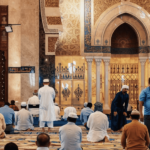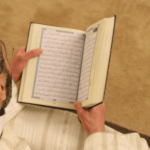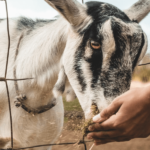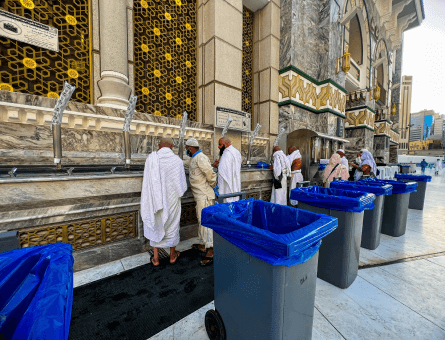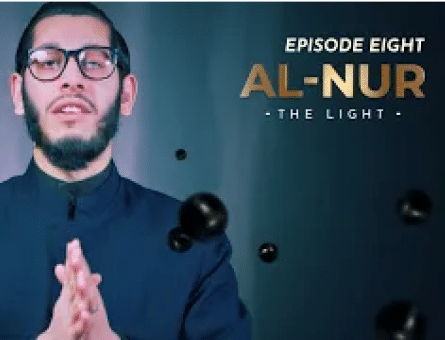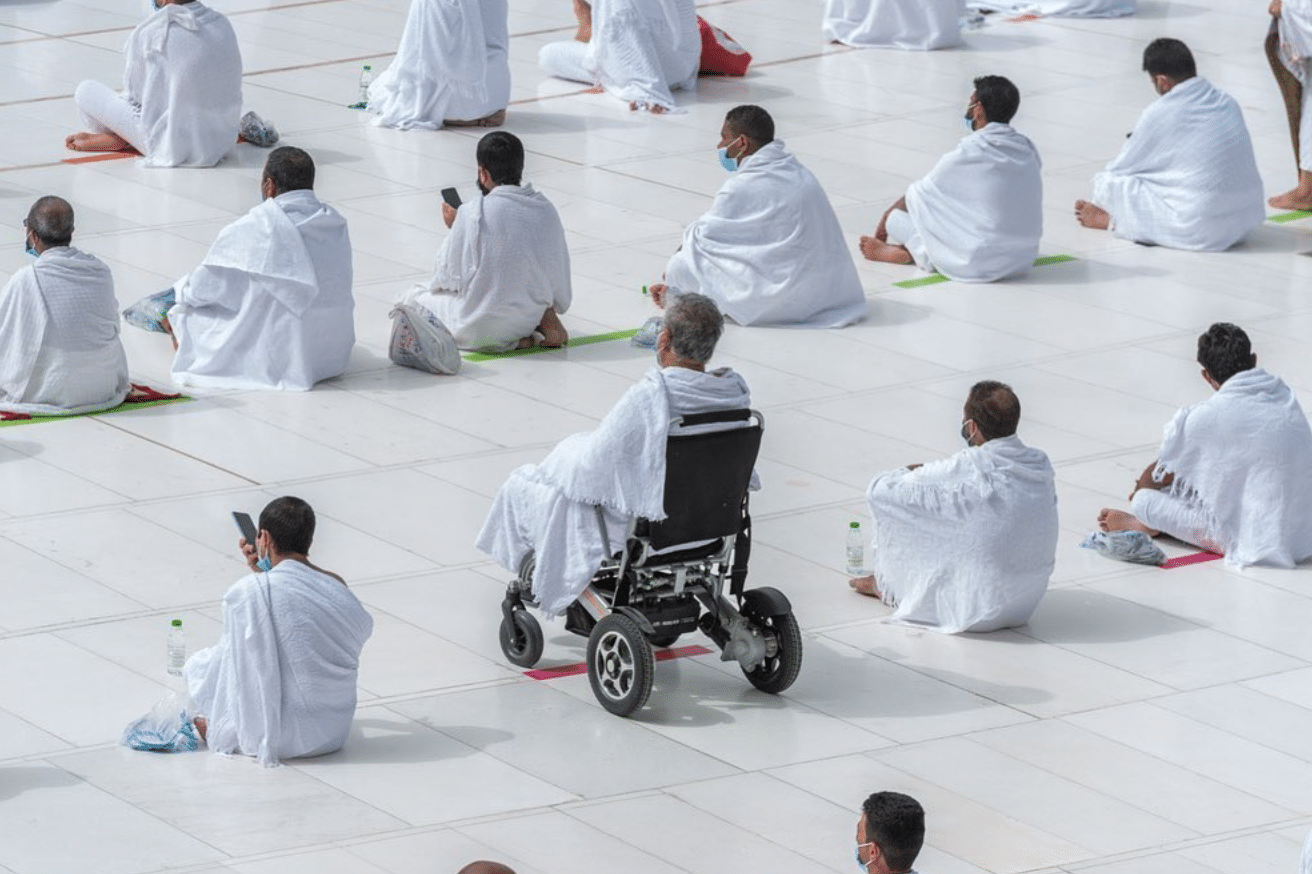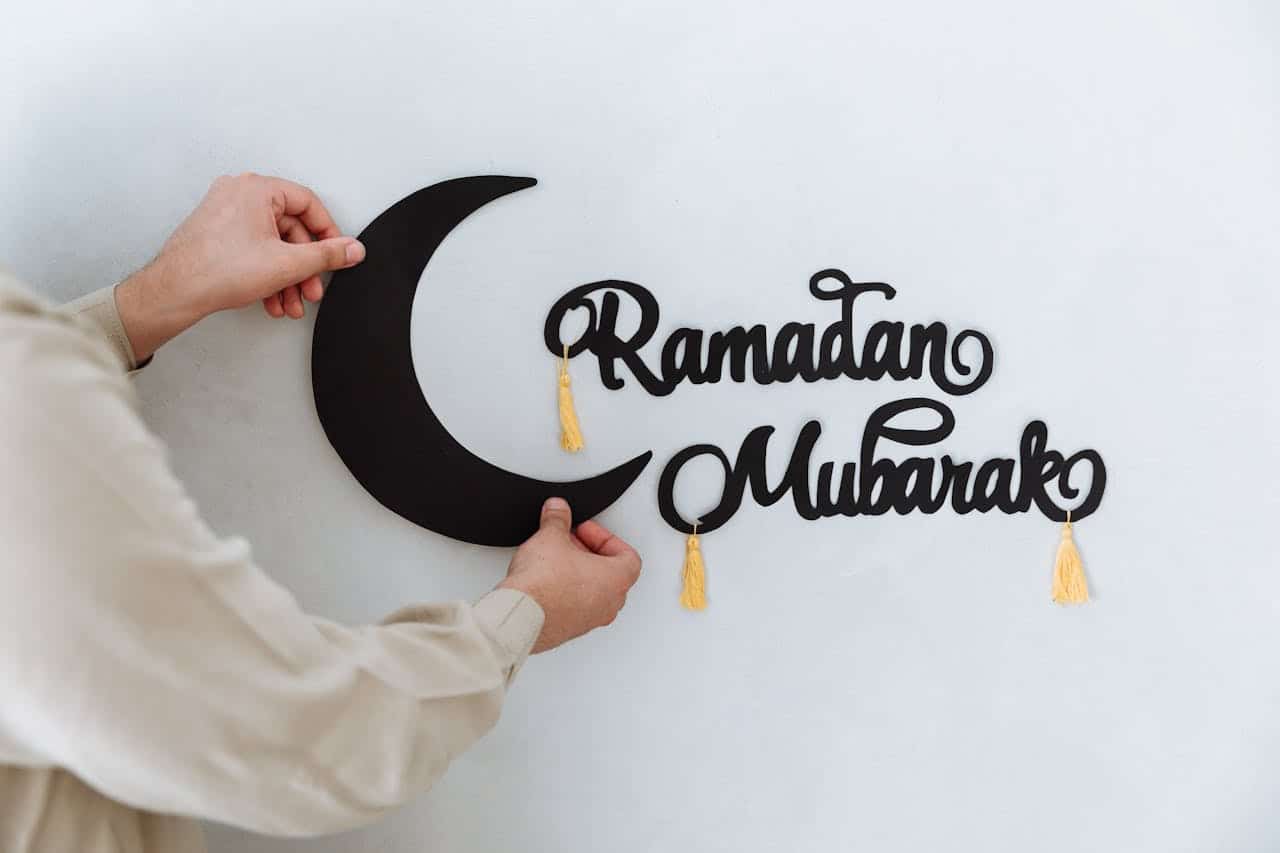Why is Ramadan important in Islam? – Your complete guide
The sighting of a new crescent moon marks the beginning of the sacred month of Ramadan, a time of self-reflection and worship for Muslims worldwide. Ramadan is one of the most precious months in the Islamic calendar.
Every year, Muslims fast from dawn to dusk for an entire month for the sake of Allah SWT with the intention of strengthening their faith and becoming better human beings. So, why is Ramadan important for Muslims?
Keep reading to find the answer!
What Is Ramadan?
Ramadan is one of the most significant months in the Islamic calendar. The word Ramadan originates from the Arabic word ‘ar-ramad,’ meaning ‘scorching heat.’ According to Islamic scriptures, it was the month of Ramadan when Allah SWT revealed the Holy Quran to Prophet Muhammad (PBUH) in Cave Hira in 610 AD. The historical night is regarded as ‘Laylat ul-Qadr,'” or the Night of Power in Islam.
Commemorating the miracle of the Holy Quran and the Sunnah of Prophet Muhammad (PBUH), Muslims fast during Ramadan.
While fasting, a believer abstains not only from drinking and eating from sunrise till sunset but also doesn’t engage in sexual activities and any unlawful worldly deeds.
What Is the Purpose of Ramadan?
The purpose of fasting is to develop taqwa (the quality of righteousness), abstain from sinful deeds, control our worldly desires, and spiritually strengthen our soul, body, and mind. Prophet Muhammad (PBUH) said, “It may be that a faster gets nothing but thirst and hunger from his fast. And it may be that one who prays the night long gets from it only sleeplessness.” (Ahmad no. 8693)
Therefore, the purpose of fasting in the holy month of Ramadan isn’t to keep one thirsty or hungry but to bring inner peace. Fasting in Ramadan is meant to instil the virtuous quality of shielding us from the evils of the world and righteously purifying our character with patience and generosity. Uthman ibn Abi al-As reported that Prophet Muhammad (PBUH) said, “Fasting is a shield from the Hellfire just like the shield of any of you in battle.” (Sunan Ibn Majah, Sahih)
Al Ghazali writes,
“Know that there are three degrees of fasting: the fasting of common people, the fasting of the elite, and the fasting of the elite of the elite. As for the fasting of the common people, it is retraining the stomach from fulfilling its desires, as has been mentioned.
As for the fasting of the elite, it is restraining one’s hearing, sight, tongue, hands, feet, and all limbs from sin. As for the fasting of the elite of the elite, it is the fasting of the heart from unworthy concerns and worldly thoughts and to restrain it entirely from everything besides Allah the Exalted.”
According to the hadith of Prophet Muhammad (PBUH), if a person doesn’t abstain from bad words and wrong deeds while fasting, Allah SWT doesn’t need anyone to fast.
Abu Hurairah (RA) narrated that the Messenger (PBUH) of Allah SWT said, “Whoever does not give up false speech and evil deeds while fasting, then Allah is not in need of his leaving food and drink.” (Sahih Al-Bukhari)
“Fasting is a shield, so the one who fasts should avoid obscene speech and ignorant behaviour. If someone abuses him or starts to fight with him, he should reply by saying: ‘I am fasting. I am fasting.'” (Sahih Al-Bukhari)
When Is Ramadan 2024?
Ramadan is the ninth month of the Islamic Lunar calendar (Hijri Calendar). Therefore, its dates depend upon the sighting of the new moon.
Ramadan is expected to begin on Sunday the 10th March 2024, with the first day of fasting being Monday the 11th of March.
However, please note that these dates are only tentative and can vary depending upon the sighting of the new moon.
Why Is Ramadan Celebrated?
“O you who believe, fasting is prescribed for you as it was prescribed for those before you that you may become righteous.” [Holy Quran, Surah al-Baqarah 2:183]
Ramadan is the month in which Allah SWT revealed the Holy Quran to Prophet Muhammad (PBUH) through the angel Jibreel (AS) in 610 AD. In order to commemorate the revelation of the greatest Holy Book in human history, Muslims fast during the sacred month of Ramadan, abstaining from eating, drinking, and all other non-religious activities from dawn till dusk.
“It was the month of Ramadan in which the Quran was first sent down as guidance for all people, having in it clear proofs of divine guidance and the criterion for right and wrong. So whoever among you bears witness to the month shall then fast it.”[Holy Quran, Surah Al-Baqarah, 2:185]
Following the Sunnah of Prophet Muhammad (PBUH), Muslims celebrate Ramadan with an aim to grow spiritually and build a stronger relationship with Allah SWT. They do this by fasting, praying, reciting the Holy Quran, giving charity, and ensuring that all their actions are selfless, purposeful, and righteous.
The Importance and Virtues of Ramadan
The month of Ramadan carries many virtues. It is the month that provides you with an opportunity to seek forgiveness and repentance and ask for the blessings and mercy of Allah SWT. Some of the unique characteristics and virtues of fasting in Ramadan are as follows:
Fasting Is the Fourth Pillar of Islam
Allah SWT has made fasting (Sawm) the fourth fundamental pillar of Islam. The Almighty in the Holy Quran says, “The month of Ramadan in which was revealed the Quran, a guidance for mankind and clear proofs for the guidance and the criterion (between right and wrong). So whoever of you sights (the crescent on the first night of) the month (of Ramadan, i.e., is present at his home), he must observe Sawm (fasts) that month…” [Holy Quran, al-Baqarah 2:185]
And it was narrated in al-Sahihayn (al-Bukhari, 8; Muslim, 16) from the hadith of Ibn’ Umar that the Prophet Muhammad (PBUH) said, “Islam is built on five (pillars): the testimony that there is no god except Allah and that Muhammad (peace and blessings be upon him) is the Messenger of Allah; establishing prayer; paying zakah; fasting in Ramadan, and Hajj to the House (the Kaaba).”

Allah SWT Revealed the Holy Quran in the Sacred Month of Ramadan
It was the month of Ramadan when the Quran was sent down from Al-Lawh al-Mahfuz (Preserved Tablet) to the Bayt al-izzah (the First Heaven).
According to Islamic history, the Holy Quran was sent down in the form of revelations over a period of 23 years upon Prophet Muhammad (PBUH) through Angel Jibreel (AS).
Allah SWT in the Holy Quran says, “The month of Ramadan in which was revealed the Quran, a guidance for mankind and clear proofs for the guidance and the criterion (between right and wrong).” [Holy Quran, al-Baqarah 2:185]
And Allah SWT says (interpretation of the meaning),
“Verily, We have sent it (this Quran) down in the Night of Al-Qadr (Decree).” [Holy Quran, al-Qadr 97:1]”
Allah SWT Blessed the Muslim Ummah with Laylat ul-Qadar (Night of Power) in Ramadan
“Verily, We have sent it (this Quran) down in the Night of Al-Qadr (Decree). And what will make you know what the Night of Al-Qadr (Decree) is? The Night of Al-Qadr (Decree) is better than a thousand months (i.e., worshipping Allah in that night is better than worshipping Him a thousand months, i.e., 83 years and four months).
Therein descend the angels and the Ruh [Jibreel (Gabriel)] by Allah’s Permission with all Decrees, (All that night), there is peace (and goodness from Allah to His believing slaves) until the appearance of dawn.” [Holy Quran, al-Qadar 97:1-5]
“We sent it (this Quran) down on a blessed night [(i.e., the Night of Al-Qadr) in the month of Ramadan — the 9th month of the Islamic calendar]. Verily, We are ever warning [mankind that Our Torment will reach those who disbelieve in Our Oneness of Lordship and in Our Oneness of worship].”[Holy Quran, al-Dukhan 44:3]
Allah SWT blessed Ramadan with Laylat ul-Qadr, the Night of Decree, when He (SWT) revealed the first revelation of the Holy Quran to Prophet Muhammad (PBUH) through archangel Jibreel (AS).
Explaining the great status of this blessed night in Islam, Surat al-Qadr was revealed. Also, there are many hadiths that tell the tale of the miraculous night.
Abu Hurairah (RA) once said, “The Messenger (PBUH) of Allah SWT said: ‘There has come to you Ramadan, a blessed month which Allah SWT has enjoined you to fast, during which the gates of Heaven are opened, and the gates of Hell are closed, and the rebellious devils are chained up.
In it, there is a night which is better than a thousand months, and whoever is deprived of its goodness is indeed deprived.'” (Narrated by al-Nasai, 2106; Ahmad, 8769, classed as sahih by al-Albani in Sahih al-Targhib, 999)
Abu Hurairah (RA) said, “The Messenger (PBUH) of Allah SWT said.
‘Whoever spends Laylat al-Qadr in prayer out of faith and in the hope of reward, will be forgiven his previous sins.'” <b>(Narrated by al-Bukhari, 1910; Muslim, 760)
Remember that Laylatul-Qadr graces us every year, so search for it in the last ten (odd-numbered) nights of Ramadan. The blessings that you attain by worshipping during the Night of Decree are equivalent to the rewards that you will achieve from doing good deeds for 83 years and 4 months.
Simply put, worshipping Allah SWT on the Night of Power is better than worshipping the Almighty for a thousand months.
Fasting Is the Expiation for Past Sins
“Perform the Pilgrimage and the Lesser Pilgrimage for Allah … but whoever among you is ill or has an ailment of the head must pay a ransom, either by fasting or by charity.” [Holy Quran 2:196]
“Never may a believer kill a believer unless by mistake … and those who find this beyond their means must fast two consecutive months. Such is the penance imposed by Allah; and Allah is Knowing Wise.” [Holy Quran 4:92]
The Reward for Fasting Is Immense

A companion of Prophet Muhammad (PBUH) reported that the Messenger (SAW) once said, “Every action of the son of Adam is given manifold reward, each good deed receiving then times it’s like, up to seven hundred times.
Allah the Most High said, ‘Except for fasting, for it is for Me, and I will give recompense for it, he leaves off his desires and his food for Me.’ For the fasting person, there are two times of joy; a time when he breaks his fast and a time of joy when he meets his Lord, and the smell coming from the mouth of the fasting person is better with Allah than the smell of musk.” (Sahih Al-Bukhari)
Also, Sahl ibn Sa’ad narrated that the Prophet (PBUH) said, “Indeed there is a gate of Paradise called Ar-Rayyan. On the day of Resurrection, those who fast will enter through it; no one enters it except for them, and when they have entered, it is closed so that no one enters it, so when the last of them enters it, it is closed, and whoever enters it drinks, and whoever drinks never becomes thirsty.” (Ibn Khuzaymah and Sahih Al-Bukhari)
Therefore, make sure you fast in Ramadan and follow the Sunnah of Prophet Muhammad (PBUH) to earn great rewards.
Fasting in Ramadan Is Equal to Fasting for Ten Months
Abu Ayyub al-Ansari narrated that Prophet Muhammad (PBUH) said,
“Whoever fasts in Ramadan then follows it with six days of Shawwal, it will be like fasting for a lifetime.” (Indicated by the hadith in Sahih Muslim (1164))
Ahmad (21906) reported that the Messenger (PBUH) of Allah SWT said, “Whoever fasts in Ramadan, a month is like ten months, and fasting six days after al-Fitr will complete the year.”
Allah SWT Redeems Believers from the Hellfire
Did you know that during every night of Ramadan, Allah SWT has people whom He (SWT) redeems from the Hellfire? In light of this, Imam Ahmad narrated from the hadith of Abu Umamah (RA) that the Prophet Muhammad (PBUH) said: “At every breaking of the fast, Allah has people whom He redeems.”
Furthermore, Al-Bazzar (Kashf 962) narrated that Abu Sa’id said: The Messenger (PBUH) of Allah SWT said: “Allah has people whom He redeems every day and night – i.e., in Ramadan – and every Muslim every day and night has a prayer that is answered.”
It Is a Sunnah to Observe Itikaf in the Last Ten Days of Ramadan
Throughout his life, Prophet Muhammad (PBUH) observed Itikaf in Ramadan. The beloved wife of Prophet Muhammad (PBUH), Hazrat Aisha (RA) reported, “He (PBUH) used to perform Itikaf in the last ten days of Ramadan until Allah SWT the Mighty and Majestic, took him. Then his wives observed Itikaf after him.” (Bukhari)
Ibn Majah narrated from Ibn ‘Abbas that the Messenger (PBUH) of Allah SWT said concerning the person who observes i’tikaf: “He is refraining from sin, and he will be given a reward like that of one who does all kinds of good deeds.”
Al-Tabarani, al-Hakim, and al-Bayhaqi narrated the following from Ibn ‘Abbas, which they classed as da’if: The Messenger (PBUH) of Allah SWT said,
“Whoever observes i’tikaf for one day seeking thereby the Face of Allah SWT, Allah SWT will place between him and the Fire three ditches wider than the distance between the east and the west.”
Ramadan Opens Your Heart to Generosity, Care, and Affection
“Wealth will not be decreased by giving charity. And a forgiving slave must be rewarded by Allah with authority.” [Narrated by Muslim]
One of the lesser-known virtues of Ramadan is that the act of fasting opens your heart to love and care and increases your eagerness to help those in need. Prophet Muhammad (PBUH) was the most generous in the holy month of Ramadan.
He (PBUH) not only observed fasting in Ramadan but also prioritised giving charity (Sadaqah or Zakat).
The Messenger (PBUH) of Allah SWT said, “Whoever gives food to a fasting person with which to break his fast, he will have the reward equal to his (the fasting person), without it detracting in the slightest from the reward of the fasting person.” (Reported by al-Tirmidhi, 3/171; Saheeh al-Targheeb, 1/451)
“Indeed, Allah the Exalted is the Giver, He loves generosity and noble manners, He detests bad manners.” (Narrated by Al Baihaqi)”
Therefore, have empathy for the poor. An easy way to do this is by remembering that Allah SWT has already written everyone’s Rizq, including the ones who are suffering. This develops a stronger inclination to give.
Helping the poor doesn’t decrease your wealth, instead, Allah SWT compensates for it by rewarding us with wealth, food, and blessings throughout our lives.
Performing Umrah in Ramadan Is Equivalent to Hajj
One of the greatest virtues of Ramadan is that Umrah performed in this sacred month carries a reward equivalent to performing Hajj in the company of Prophet Muhammad (PBUH).
Ibn Abbas (RA) narrated, “The Messenger (PBUH) of Allah SWT said to a woman among the Ansar, ‘What kept you from doing Hajj with us?’ She said, ‘We only had two camels that we used for bringing water.’ So her husband and son had gone for Hajj on one camel, and he left the other for them to use for bringing water. He said, ‘When Ramadan comes, go for ‘Umrah, for ‘Umrah in Ramadan is equivalent to Hajj.'” According to a report narrated by a Muslim, “…is equivalent to doing Hajj with me.” (Muslim and Al-Bukhari)

Summary – Why Is Ramadan Important?
Reflecting upon the virtues and importance of Ramadan as highlighted in this article, one realises that Allah SWT has been extremely Merciful to mankind by granting several easy ways to access Jannah. In a hadith reported by Imām al-Tirmidhī from the narration of Abu Hurairah (RA), the Messenger (PBUH) of Allah SWT said:
“May the man before whom I am mentioned – and he does not send Ṣalawat upon me – be humiliated. And may a man upon whom Ramadan enters and then passes, before he is forgiven, be humiliated. And may a man whose parents reached old age in his presence, and they were not a cause for his entrance to Paradise, be humiliated.”
The ten virtues of Ramadan discussed in this article aren’t the only ones. In fact, these were selected from the many virtues of Ramadan. In order to be a devoted believer and a good human being, a person should have pure intentions and worship Allah SWT as instructed to us in the Holy Quran and through the Sunnah of Prophet Muhammad (PBUH).
Fasting in Ramadan is a chance to revive our souls, and so one shouldn’t skip it as the rewards are endless with guaranteed eternal happiness in Paradise.
Explore The New Pilgrim App
The Ultimate App
for Hajj and Umrah!






